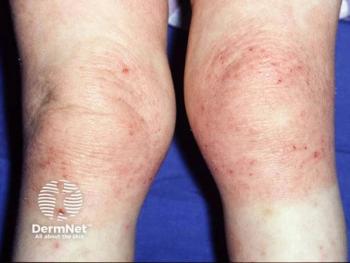
Measuring Sleep Impact
Alexandra Golant, MD, shares how sleep improvement is measured and the difference an effective treatment makes for the patient’s entire family.
Episodes in this series

This news content has been independently developed and is not endorsed by the American Academy of Dermatology.
In this Dermatology Times Expert Perspectives series, 5 experts delve into the multifaceted aspects of pediatric atopic dermatitis care including demographic variances to long-term safety and efficacy, comparative analyses, key takeaways from recent research, personalized approaches, and future research directions. Discover clinical insights into the role of ruxolitinib (Opzelura) in addressing critical challenges and enhancing patient outcomes.
In this episode, Alexandra Golant, MD, assistant professor and residency program director at the Icahn School of Medicine at Mount Sinai in New York, New York, shares how sleep improvement is measured and the difference an effective treatment makes for the patient’s entire family.
Dermatology Times Interview with Alexandra Golant, MD
Dermatology Times: One concern often voiced by parents is the impactof atopic dermatitis on a child's sleep. In the studies involving ruxolitinib, how does the treatment influence sleep patterns in pediatric patients, and what implications does this have for their overall well-being?
Golant: Given what we know about the rapid onset of itch reduction for the use of topical ruxolitinib for our pediatric AD populations in these trials, it's really unsurprising that we see significant improvements in quality of life outcome measures when you look at Patient Oriented Eczema Measure (POEM) [and] when you look at Dermatology Life Quality Index (DLQI) scores in these patients. I think a large part of that is the itch reduction, allowing patients to sleep more comfortably.
I often say that AD, particularly when a child has AD, it becomes really a family disease. It becomes a family experience if you have or if you know a young child when a child is not sleeping. It's not just the child that's up at night. It's sometimes 1 or both parents, sometimes siblings. So, improving itch and really been able to improve that quality of life for these young patients is an incredible outcome of any therapy, including what we see here with with ruxolitinib.
Newsletter
Like what you’re reading? Subscribe to Dermatology Times for weekly updates on therapies, innovations, and real-world practice tips.

















